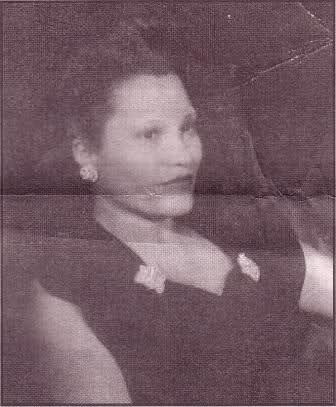Lovie Yancey, an African America woman was recognized as a trailblazing black businesswoman of her time. She started a popular post-World War II hamburger stand in 1947. Eventually, the restaurant chain – Fatburger – became a successful franchise around the world.
“I settled on hamburgers because they were the fastest-selling sandwich in America,” she told the Wave newspaper in 1985. At
According to history, with scrap materials from his place of employment, Simpson built a three-stool hamburger stand on Western Avenue, near Jefferson Boulevard in South Central Los Angeles in 1947.
“The name of the store was my idea, I wanted to get across the idea of a big burger with everything on it… a meal in itself,” Yancey, who was born in Texas on Jan. 3, 1912, said.
Their hamburger stand flourished so much that Yancey and Simpson opened three more branches over the next five years. In 1952, the two ended their business partnership. While Simpson and his wife took control of the other Mr. Fatburger locations, Yancey retained ownership of the original business.
She settled on Fatburger without ‘Mr’ as her new business name. To ensure smooth operation, Yancey dedicated her time to the business losing some sleep to get it going. “I worked 16, 17 and 18 hours a day behind the counter, seven days a week,” Yancey recalled in the 1985 interview. “I’d come home, catch a few hours of sleep and start all over again.”
Years later, in 1973 Yancey opened a Fatburger joint on La Cienaga Boulevard in Beverly Hills, which soon became a popular place for entertainers such as the comedian Redd Foxx, singer Ray Charles, and many others. People began to custom order their burgers.

By 1980, Yancey began growing her business through local franchising. The chain had over 15 franchise sites throughout southern California by the end of 1985. In the same year, Fatburger was named number five among the fastest-growing burger franchise chains by Entrepreneur magazine in its annual Franchise 500 list, right behind the McDonald’s, Burger King, and Wendy’s. For three consecutive years, Fatburger was named in the annual Franchise 500 list.
“I don’t worry about McDonald’s, Burger King or Wendy’s,” Yancey told the Wave. “They may be more popular, but a good hamburger sells itself, and I don’t think anybody makes as good a hamburger as we do.”
Over the years, Fatburger has seen radical growth and even once made the Late Night talk show host David Letterman’s Top 10 list of things he’d miss most about leaving Los Angeles.
Yancey sold her Fatburger company to an investment group in 1990 but retained control of the original property on Western Avenue. The stand was later sold to a developer, The Times reported.

Many decades later, the hamburgers are still being made the way she did with fresh, never frozen Alberta Angus beef. No additives, binders or fillers. “It’s hard to keep a business going for over 60 years. Even harder: to pursue the same standard of excellence she did back in the day,” their website reads.
In 2005, the first Fatburger Canada opened in the popular English Bay area of Vancouver, BC. Santa Monica-based Fatburger Corp., owned by Fog Cutter Capital Group, currently has 93 locations in the United States, Canada and Macao.
Beyond her Fatburger legacy, Yancey established a $1.7 million endowment at the City of Hope National Medical Center in Duarte, California, in 1986 for research into sickle-cell anaemia. She created the endowment in dedication to her 22-year-old grandson, Duran Farrell, who had died of the disease three years earlier.
Unfortunately, the enterprising Yancey died of pneumonia on January 26, 2008, at the age of 96 at the Olympia Medical Center in Los Angeles, California.










